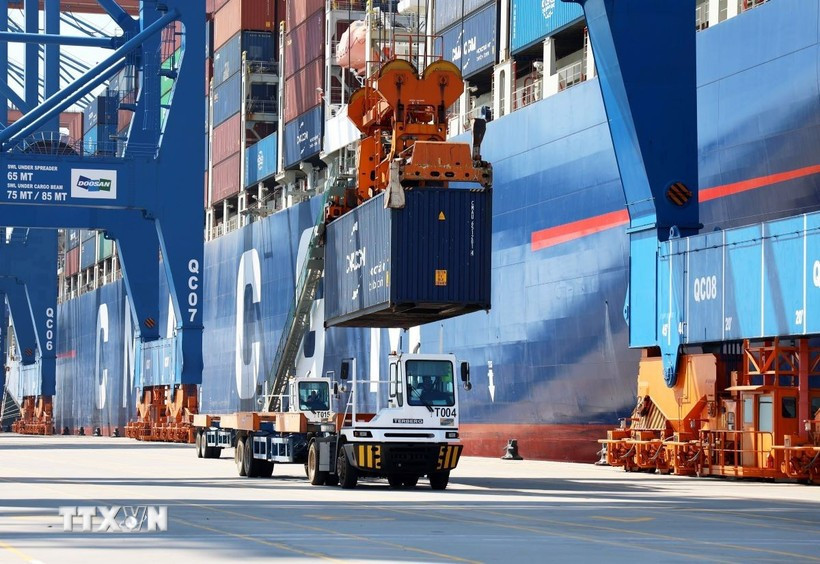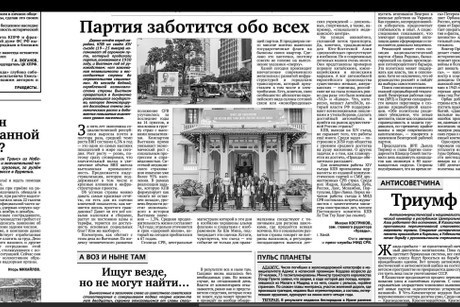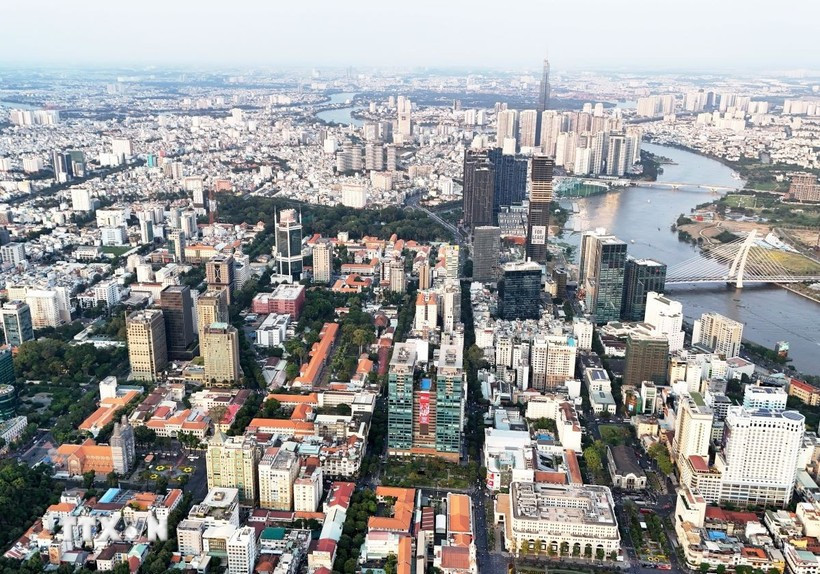Việt Nam sparks a remarkable growth in industrial production in 2024
2024 was a year of fluctuations, with many unfavourable factors domestically and internationally.
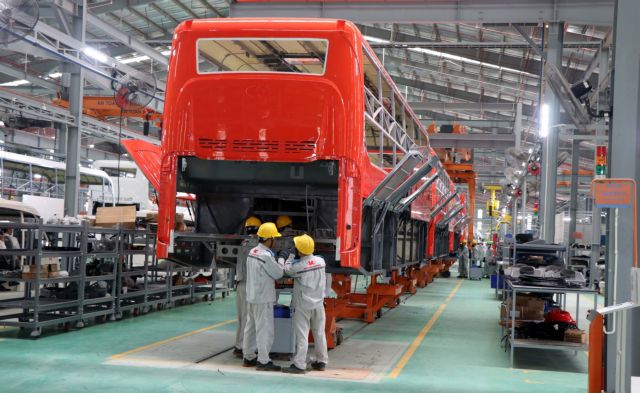
HÀ NỘI — Việt Nam's industrial sector marked a remarkable growth in 2024 with the industrial production index (IIP) surging by 8.4 per cent year-on-year, a record high over the past four years, the General Statistics Office (GSO) has said.
According to the GSO, the figure exceeded the annual target of 7-8 per cent.
Head of the GSO's Industry and Construction Statistics Department, Phí Thị Hương Nga, said 2024 was a year of fluctuations, with many unfavourable factors both at home and abroad.
The global economy was recovering slowly, trade competition was fierce and geopolitical conflicts were escalating, all of which created significant challenges for Việt Nam.
Domestically, although Việt Nam prioritised stabilising the macro-economy, controlling inflation and maintaining growth, the country still had to face difficulties such as the impact of natural disasters.
However, overcoming those difficulties, the nation experienced impressive industrial production growth in 2024, with the highest growth rate in the past four years, Nga told Vietnamplus.
She attributed last year's encouraging result to the flexible and effective management of the Government. Last year, many policies were issued by the State to remove difficulties for businesses, especially tax policies.
For example, Decree 109 reducing 50 per cent of registration tax for domestically produced and assembled cars created a big drive in demand, helping the motor vehicle manufacturing industry grow strongly. Accordingly, the production index of this industry surged by 44 per cent year-on-year in the fourth quarter and 21 per cent year-on-year in 2024.
At the same time, significant efforts from local authorities to reform administrative procedures, improve infrastructure and promote investment encouraged businesses to invest and develop production, Nga said.
She added that effective investment and trade promotion campaigns contributed to the growth.
In 2024, the manufacturing and processing industry saw the highest IIP growth at 9.6 per cent, compared to 1.5 per cent in 2023. It was followed by the water supply sector at 10.7 per cent and the electricity production and distribution sector at 9.5 per cent. In contrast, the mining sector posted a decline of 6.5 per cent.
Several key industries also recorded impressive growth rates compared to 2023. Rubber and plastic products rose by 25 per cent, furniture production (24 per cent), automotive production (21 per cent), leather and leather-made goods (14 per cent), coke and refined petroleum products (13 per cent) and textiles (12 per cent).
Conversely, some others posted an IIP decline such as crude oil and natural gas exploitation at 11 per cent, coal at 6 per cent, maintenance and installation of machinery and equipment with 5 per cent and beverage production at 1.5 per cent.
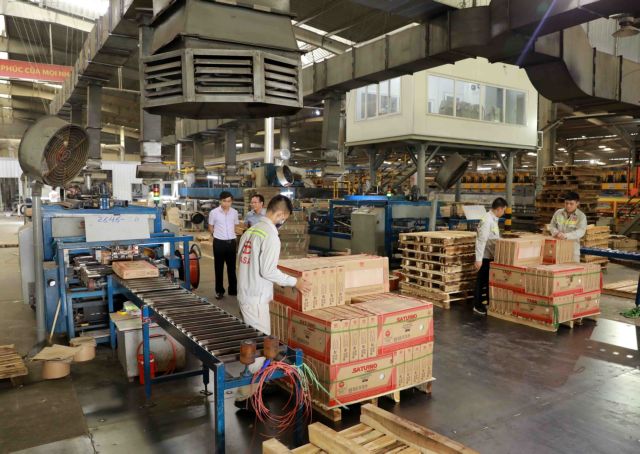
A ceramic tile production factory in Phú Thọ Province which recorded exceptional growth in the manufacturing and processing industries in 2024. — VNA/VNS Photo Vũ Sinh
The IIP over 2024 also showed notable variation across localities, with 60 out of 63 provinces recording increases, the GSO said, adding that some provinces recorded exceptional growth in the manufacturing and processing industries such as Phú Thọ (45 per cent), Lai Châu (36 per cent), Bắc Giang (28 per cent) and Thanh Hóa (20 per cent).
Meanwhile, Khánh Hòa, Trà Vinh, Điện Biên, and Cao Bằng saw strong growth in electricity production and distribution at 136 per cent, 50 per cent, 49 per cent and 48 per cent, respectively.
As of December 31, 2024, the inventory index of the processing and manufacturing sector was estimated to rise 10 per cent compared to the previous month and 10.6 per cent compared to the same period last year. The average inventory ratio of the industry in 2024 was 77.1 per cent, compared to 88 in 2023.
The GSO also said that the number of workers in industrial enterprises as of December 1, 2024, increased by 1 per cent month-on-month and by 3.2 per cent year-on-year.
According to Nga, this year would see both challenges and opportunities. In terms of the global situation, several risks including the impact of monetary policy, financial market risks, public debt stress, difficulties in the Chinese real estate market, commodity price fluctuations due to climate change, geopolitical conflicts and rising trade protectionism could negatively impact a highly open economy like Việt Nam.
Domestically, many positive factors such as a stable macro-economy, controlled inflation, stronger inflow of foreign direct investment (FDI), and the State's focus on public investment, especially in key national projects, along with shifting international supply chains would bring great opportunities for Việt Nam, Nga predicted.
Nga said she believed that Việt Nam could create a breakthrough in industrial growth in 2025 and the following years, if the country took full advantage of these opportunities, while facilitating digital and green transformation, meeting the increasingly stringent requirements of the international market.
Source: VNS
Original link



